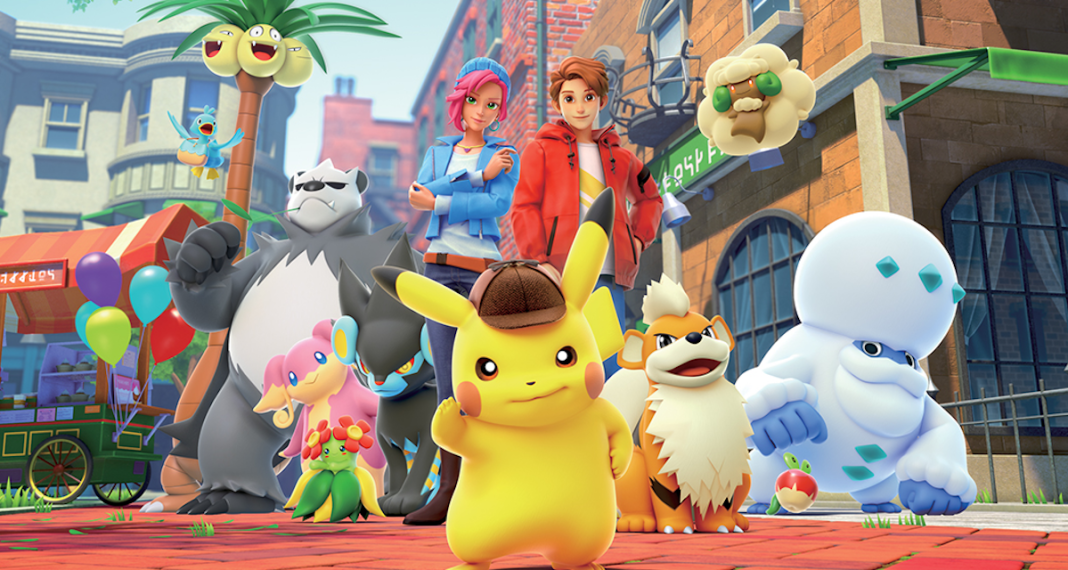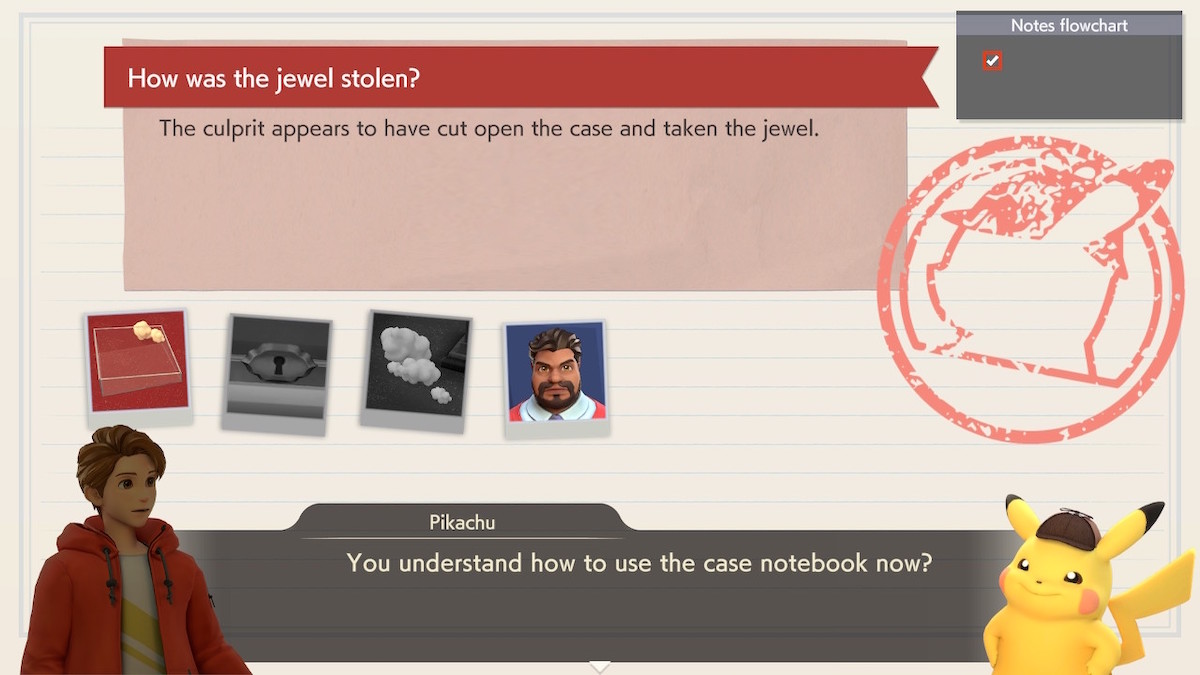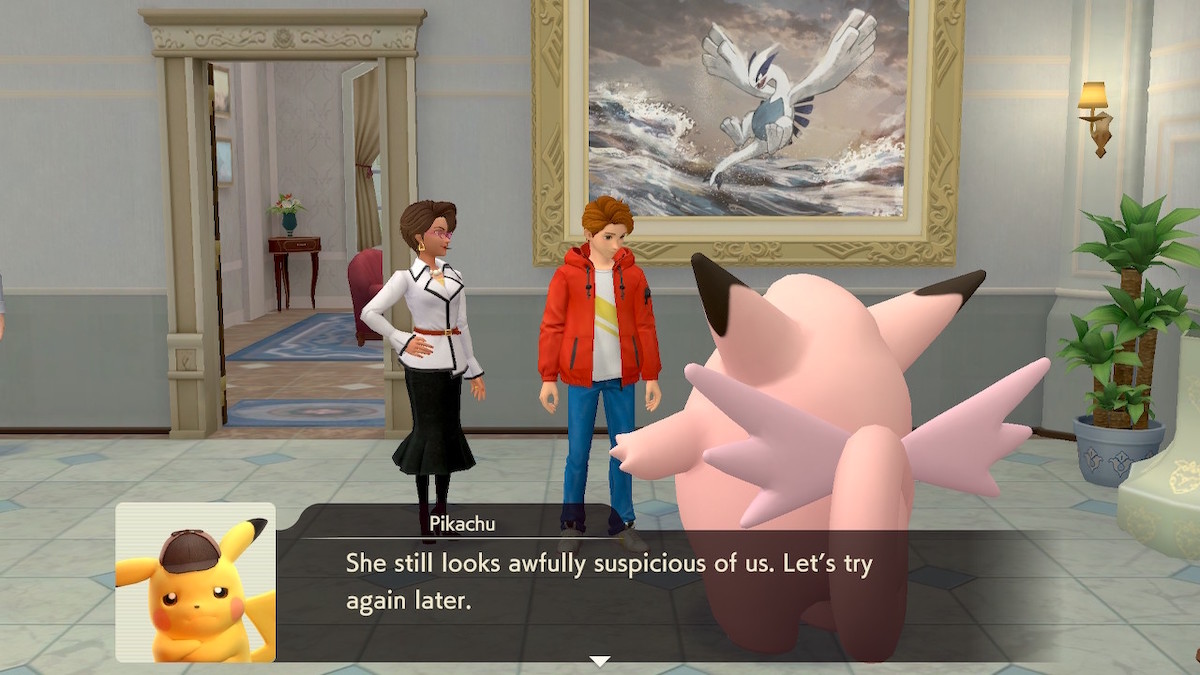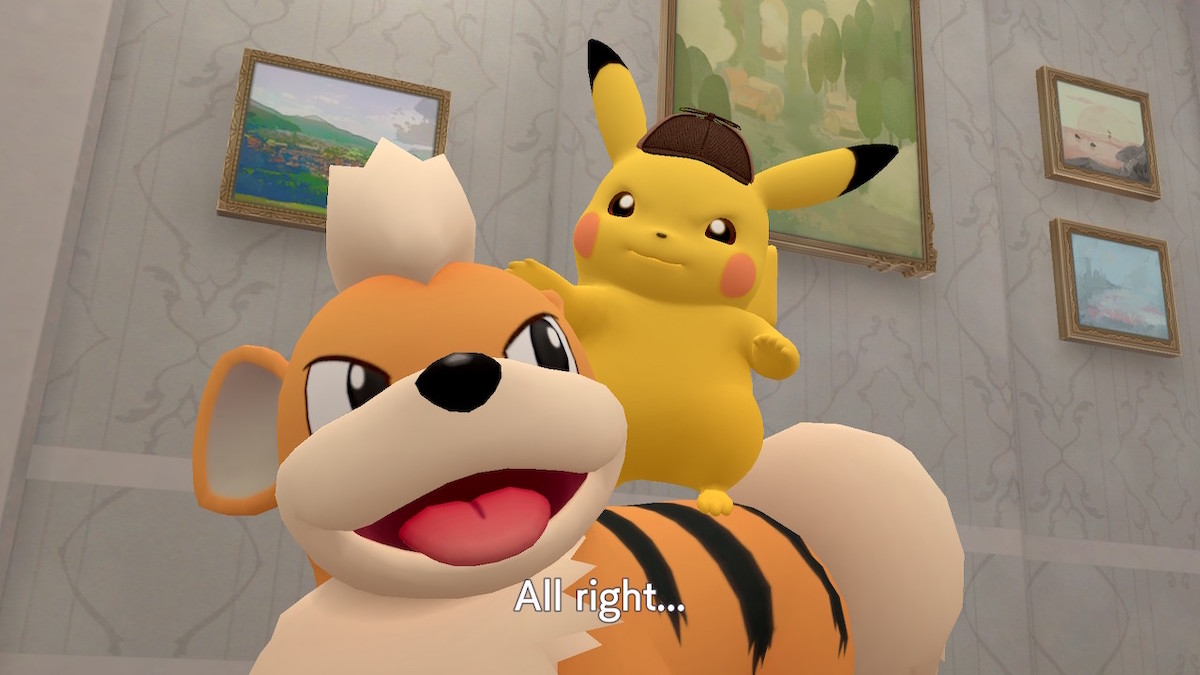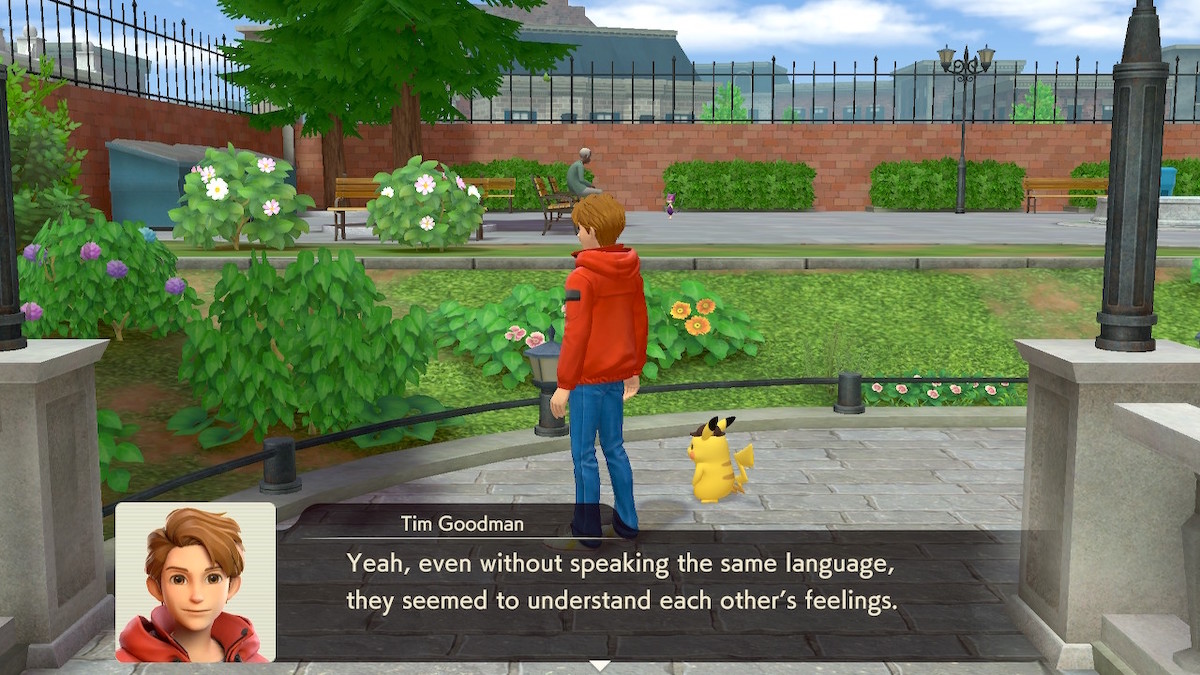This review for Detective Pikachu Returns avoids spoilers.
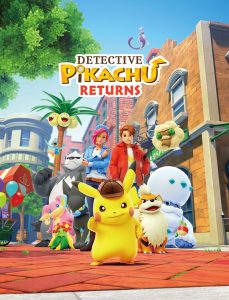
Like the first game in the series, Detective Pikachu Returns blends the tropes of genre fiction with the deep world of Pokémon. And like that first game, the result is a fascinating and insightful expansion of that world. Furthermore, this sequel pushes the boundaries of the first game’s narrative to new heights, making it a must-play franchise entry for those who, like me, were captivated by the original game’s premise.
Detective Pikachu 2
First, let’s get this out of the way: as acknowledged by in-game dialogue, Detective Pikachu Returns is a sequel to the Detective Pikachu game for 3DS, released in 2016 in Japan and worldwide in 2018. Meanwhile, the 2019 Detective Pikachu movie starring Ryan Reynolds, Justice Smith and Kathryn Newton tells a story that is separate and distinct from the two games.
As such, to best enjoy the game you’ll want to be sure you’ve played the first game, not just seen the big-screen adaptation. Hopefully, in the future, a combo pack that includes a Switch port of the original Detective Pikachu alongside Detective Pikachu Returns will be released. However, for gamers who (like me) played the original game on 3DS, this long-awaited sequel delivers the goods.
Pikachu’s deductive process
Like the first Detective Pikachu, veterans of the larger Pokémon franchise will immediately notice a departure from the style of gameplay that characterizes the mainline games. Perhaps the most notable departure is the fact that the player does not participate in any Pokémon battles in the Detective Pikachu games.
Instead, the gameplay is focused on interviewing characters — humans and Pokémon alike — in order to gather clues and testimony so as to deduce the solution to various mysteries. If you like reading all the dialogue from NPCs in the main Pokémon games, you’ll love the way the Detective Pikachu series utilizes this technique.
Sometimes, the player is likely to determine the outcomes of the mysteries in advance. However, because the game requires the player to back up their deductions with demonstratable evidence, more investigation may be necessary before the plot point can be cleared. Careful analytical thought can sometimes require that you go over the same facts repeatedly until a previously unrecognized pattern becomes apparent. Likewise, Detective Pikachu Returns sometimes requires you to repeatedly travel back and forth between two areas or to interview the same subject multiple times.
While impatient players may have a problem with these repetitive elements, younger players will benefit from the game’s intentional demonstration of analytical processes. Furthermore, should some of these hypothetical young players cultivate an interest in the mystery genre, Detective Pikachu’s observations about the nature of deduction will help them better appreciate the genre as a whole.
Beneath Ryme’s surface
Detective Pikachu Returns carries on one of the best elements of the first game: giving players a unique window into the perspective of Pokémon. If you’ve ever been curious about the extended world of Pokémon, and the many ways that the pocket monsters play a role in their society beyond being trained fighters, the Detective Pikachu series continues to deliver.
Listening to those whose voices often go unheard is a key characteristic of mystery’s private detective subgenre. In the most thematically sophisticated (and most satisfying) detective stories, the disenfranchised are given a chance to share their often-overlooked perspective through their interactions with the gumshoe protagonist. While the Detective Pikachu series does not take place in our world, it nevertheless hews very close to this element of the genre by allowing players a new perspective into the thoughts and minds of Pokémon.
And while this element was present in the first game, Detective Pikachu Returns takes it one step further, allowing players to step into the role of Detective Pikachu himself at various points throughout the game. This often involves Pikachu teaming up with other Pokémon. Not only does this allow for some fun and unusual gameplay elements, but it also affords some incredible visuals, as the adorably animated Pikachu interacts with these Poké partners.
If you’re the type of player who marvels over details included in the Pokédex entry of various Pokémon, wondering how certain details about the monsters affect day-to-day life instead of just battles, Detective Pikachu offers exactly the examination for which you’ve been searching.
Detective Pikachu Returns
Finally, any review of Detective Pikachu Returns would be remiss not to mention the game’s fantastic music. Whether it is the all-Pokémon band performing at the Hi-Hat Café or the incredibly catchy “deduction music” that plays when Tim opens his detective’s notebook, there is no shortage of stellar music in the game. Like myriad other songs from throughout the Pokémon franchise’s history, you’ll be humming these tunes long after the console has been powered down.
Communication is at the heart of Detective Pikachu Returns. This is thanks to the fact that Tim and Pikachu’s ability to communicate allows the human partner to better understand the Pokémon who are (often unwillingly) entangled in the mystery which the detectives are attempting to solve.
However, while this insight is invaluable for solving the mystery, the game also emphasizes the fact that communication is possible even when a shared language is not present. This theme in turn enriches the game’s narrative, and by extension, adds texture to the franchise as a whole.
Between the charming, coffee-swilling protagonist and the intriguing exploration of the world of Pokémon, Detective Pikachu Returns is another compelling entry in this winning series.
Detective Pikachu Returns is available now. Review code provided by Nintendo.


